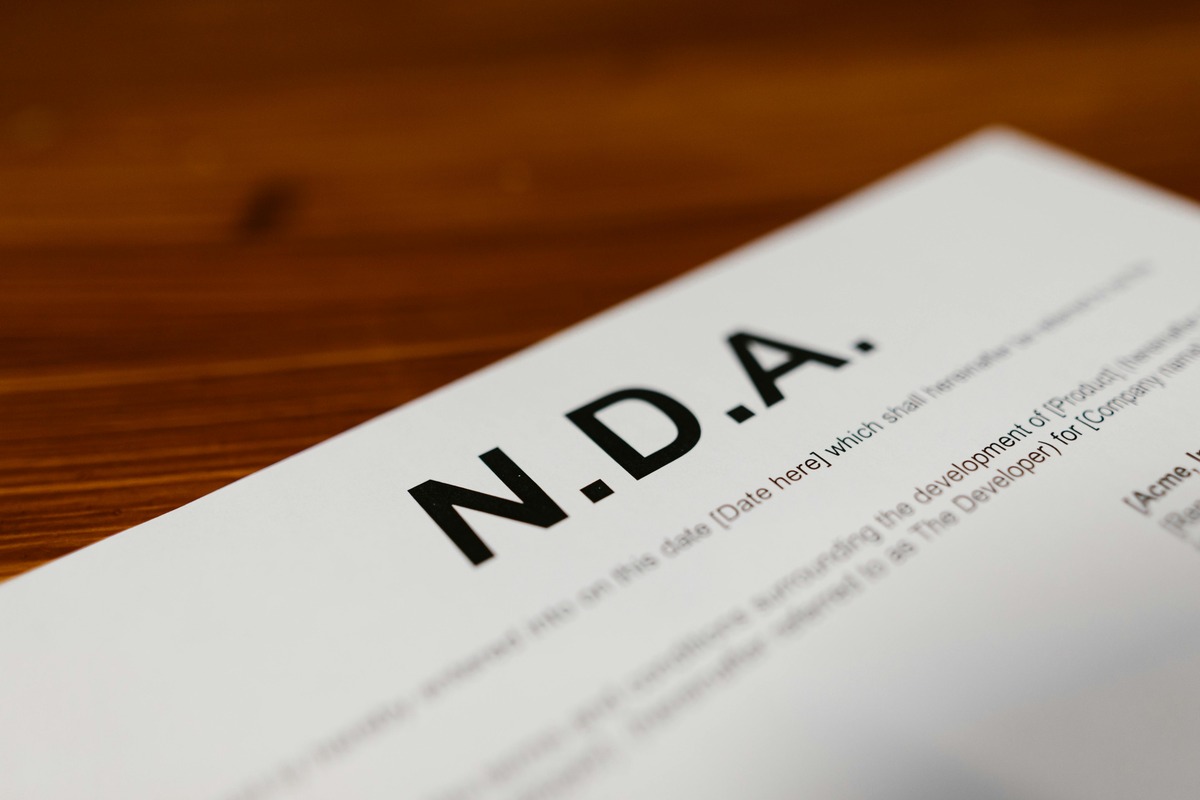
How to Protect Your Intellectual Property as a Startup
Starting a business is an exciting yet challenging journey. Product development, marketing, and funding are crucial aspects of a startup. Intellectual property for startups is often overlooked. Not protecting your business ideas can cause legal issues, loss of exclusivity, and even failure.
This guide explains how to protect your intellectual property, trademark vs patent differences, and actionable strategies. This way you can know how to protect business ideas effectively.
Understanding Intellectual Property (IP)
Before diving into protection strategies, it’s essential to understand the different types of intellectual property (IP):
- Trademarks: Protect brand names, logos, and slogans. They distinguish your business from competitors.
- Patents: Protect inventions, new processes, or significant improvements on existing products.
- Copyrights: Protect original works of authorship, such as books, music, software, and creative content.
- Trade Secrets: Keep confidential business info safe. This includes formulas, algorithms, and strategies that give you a competitive edge.
Why Intellectual Property Protection is Essential for Startups
For startups, getting intellectual property is more than just following the law. It affects growth and how they compete. Here’s why intellectual property for startups is crucial:
- Stops Copycats: Without IP protection, competitors can steal your ideas. This can reduce your market share.
- Boosts Business Value: Investors like startups with secured IP assets. They lower risks and raise profits.
- Offers Legal Protection: IP rights let you act against infringements and unauthorised use.
- Creates Competitive Advantage: IP helps build brand identity and exclusivity in the marketplace.

Quick Guide: IP Protection for Startups
- Register your brand name and logo with a trademark
- Apply for a patent if your product or tech is unique
- Use NDAs with partners, freelancers, and investors
- Keep trade secrets secure and access limited
- Copyright any original content or software
- Monitor for infringement and take action promptly
Pro Tip
Protecting your intellectual property early saves you from expensive legal battles later. Don’t wait until someone copies your idea—act before you launch.
Important
Your startup’s intellectual property could be its most valuable asset. Investors, competitors, and collaborators will take your business more seriously when your IP is legally protected.
How to Protect Business Ideas from the Start
1. File for Trademarks Early
A trademark is essential for securing your startup’s brand identity. It protects your business name, logo, and slogan from being used by competitors. Here’s how to register a trademark:
- Conduct a trademark search to ensure your name or logo is unique.
- File a trademark application with your country’s IP office (e.g., USPTO in the U.S. or UKIPO in the UK).
- Monitor for infringements and take legal action if necessary.
Registering a trademark keeps others from using similar branding. This helps avoid confusing your customers.
2. Understand the Difference: Trademark vs Patent
One common mistake entrepreneurs make is confusing trademark vs patent. While both protect intellectual property, they serve different purposes:
- Trademark: Protects brand identity (logos, names, slogans).
- Patent: Protects inventions and innovative processes.
If your startup is developing a new product or technology, you’ll likely need both a trademark and a patent for full protection.
3. Secure a Patent for Your Innovation
If your startup is built around an innovative product or process, securing a patent is essential. A patent prevents others from copying or selling your invention without permission. Here’s how to get started:
- Conduct a patent search to check if your idea is unique.
- Prepare a detailed patent application, including technical specifications.
- File with the relevant patent office (e.g., USPTO, UKIPO, EPO).
- Work with a patent attorney to strengthen your application and avoid common mistakes.
Patents can be expensive and time-consuming, but they offer strong legal protection for up to 20 years.
4. Use Non-Disclosure Agreements (NDAs)
When talking about business ideas with partners, investors, or employees, use Non-Disclosure Agreements (NDAs). They help keep sensitive information safe. NDAs keep people from sharing or using your ideas without permission. They legally require confidentiality.
Key elements of an NDA:
- Clear definition of confidential information
- Duration of confidentiality obligations
- Consequences for breaches
NDAs are crucial for startups sharing business ideas during pitch meetings or collaborations.
5. Protect Trade Secrets
Trade secrets are private business methods, formulas, or strategies. They give companies a competitive edge. Famous examples include Coca-Cola’s formula and Google’s search algorithm. To protect trade secrets:
- Restrict access to sensitive information (only key employees should have access).
- Use encryption and security measures for digital files.
- Have employees sign confidentiality agreements.
- Conduct regular IP audits to ensure security measures are effective.
Keeping trade secrets can help your startup stay competitive over the long run. You don’t need to register them publicly.
6. Copyright Your Original Content
If your startup produces unique content, such as blog posts, videos, graphics, or software, you should copyright your work. Copyright protection applies automatically upon creation, but registering it offers additional legal advantages.
Benefits of copyright registration:
- Gives you exclusive rights to use, distribute, and monetise content.
- Enables legal action against unauthorised use.
- Provides proof of ownership in legal disputes.
Digital businesses and content-driven startups must copyright their original work. This protects them from plagiarism and unauthorised use.
7. Monitor and Enforce Your IP Rights
Securing IP is only the first step—startups must actively monitor and enforce their rights. Here’s how:
- Regularly search for IP infringements online and in marketplaces.
- Set up Google Alerts for your brand name and products.
- Take legal action against violators through cease-and-desist letters or lawsuits if necessary.
- Register your IP in multiple jurisdictions if operating internationally.
Failure to enforce IP rights can weaken their value, making it easier for competitors to take advantage of your hard work.
Common Mistakes Startups Make with IP Protection
Even with the best intentions, startups often make critical mistakes regarding intellectual property for startups:
- Delaying IP Protection: If you wait too long to file patents or trademarks, competitors might claim ownership.
- Not Conducting an IP Search: Failing to check existing patents or trademarks can lead to legal disputes and forced rebranding.
- Lack of Documentation: Not keeping good records of IP ownership can cause problems in investor talks or acquisitions.
- Ignoring International Protection: If you plan to expand globally, securing IP in multiple jurisdictions is crucial.
Avoiding these mistakes keeps your startup legally safe and competitive.
Top 5 FAQs About Startup Intellectual Property
1. Do I really need a patent for my startup idea?
If your product or process is novel, useful, and non-obvious, a patent gives you exclusive rights and prevents competitors from copying your invention.
2. What’s the difference between a trademark and copyright?
A trademark protects your brand name, logo, or slogan. Copyright protects original works like content, code, designs, and creative assets.
3. When should I file for IP protection?
As early as possible—ideally before you go public with your product or pitch to investors. Filing early prevents others from registering your IP first.
4. Can I protect an idea without a patent?
Yes. Use NDAs to keep ideas confidential. You can also rely on trade secret protection if your idea remains undisclosed and provides competitive value.
5. Do I need international IP protection?
If you plan to operate or sell globally, consider registering your IP in key markets to avoid infringement and maintain brand control abroad.

Intellectual Property Plans for Startups
Intellectual property protection is a crucial component of startup success. Taking proactive steps to secure trademarks, patents, copyrights, or trade secrets can help avoid costly legal battles. This way, you can protect your business’s future.
For full protection, team up with IP attorneys. Use NDAs when sharing ideas. Also, actively enforce your rights. Startup founders who focus on protecting their intellectual property get a competitive edge. This helps them draw in investors and achieve lasting business success.
Launching a startup? Protect your business ideas. First, secure your trademarks. Then, file for patents. Also, implement strong confidentiality measures right away!